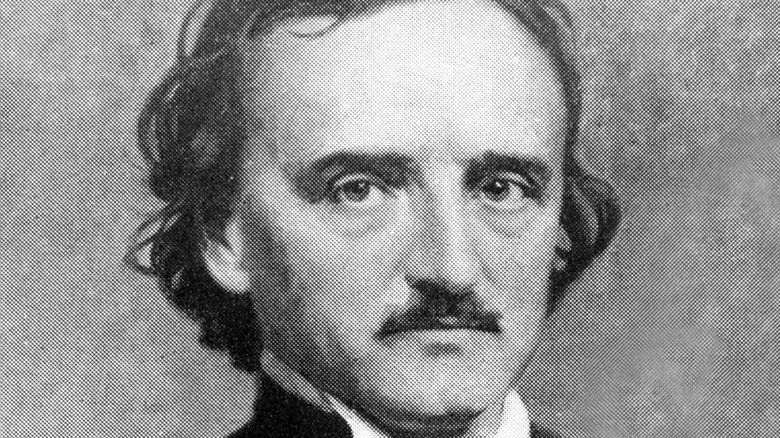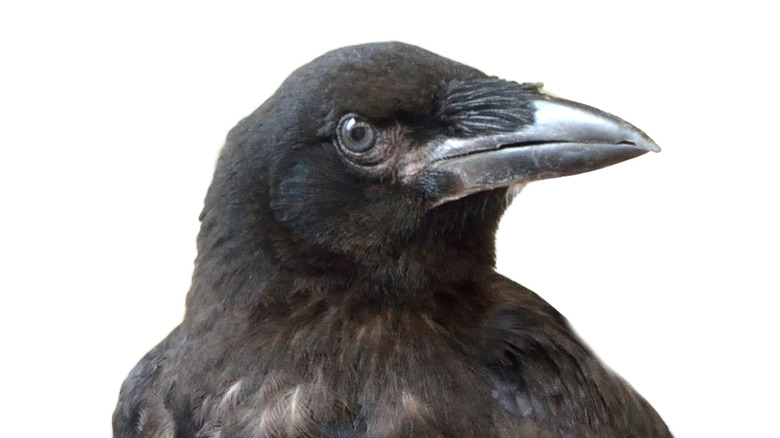The Inspiration Behind Edgar Allan Poe's The Raven Explained
Nearly two centuries later, Edgar Allan Poe's 1845 poem "The Raven" is famously alluded to in pop culture and media on a routine basis. It is regarded as one of history's most renowned and undying literary entities, and one that the writer often referred to as his "best work" (via Shapell). While the primary theme of "The Raven" is death — the bird itself being a symbol for it — the inspiration behind it was more life-based than one would think.
Charles Dickens, another one of the Victorian era's more celebrated novelists, wrote "Barnaby Rudge" in 1841. The story's title character was accompanied by a feathered companion who had the ability to speak, and when Poe reviewed the first few chapters of the book in "Graham's Magazine," this was one of its quirkier details that especially amused him (per Bustle).
When Dickens visited the U.S. shortly thereafter, he met with Poe at the latter's request, but he didn't come alone. Alongside him was Grip, his pet raven and the inspiration behind Rudge's peculiar compatriot (via Bustle).
Birds of a feather
Naturally, Edgar Allan Poe was delighted to learn of the unique specimen's real-life sentience. Grip's impression upon him was so profound, he could not help but adopt elements of his character — both as Dickens' pet and Rudge's friend — into his own work. Hence, "The Raven" (via Bustle).
It goes without saying that Grip would appear in a more brooding, morbid context after being filtered through Poe's creative psyche. As many readers already know, "The Raven" is understood to be an omen of ill-will and doom, tapping at the door and threatening "nevermore, nevermore." Critics caught on immediately, recognizing the connection between both works (per Bustle).
In hindsight, one might claim that his poem was an incidental foretelling of his own demise, as Poe died under mysterious circumstances four years later (via Smithsonian). Nonetheless, "The Raven" would go on to (ironically) become one of literature's eternal works.

